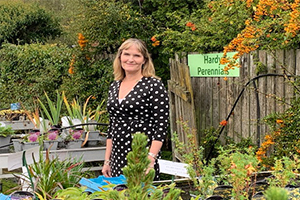Is your diversification project ‘agricultural use’ and does it matter?
In the current climate, many farmers are diversifying to future proof their farm business. In more recent years this has meant new non – farming business ventures. However, as an owner or tenant of agricultural land, you may be subject to restrictions as to how that land is used and now is probably a good time to check whether this applies to you and consider if this affects your diversification plans.
The recent claim brought against the estate of Mr Philip Partridge (deceased) and his wife Mrs Lynette Partridge (Mills v Estate of Partridge and another [2020]) is a perfect example of why a requirement that land to be used for agricultural purposes only, certainly does matter.
Pamela Mills (claimant) was the owner of land at Iverley House Farm in Staffordshire including a track which was the only access to a plant nursery called Highdown Nursery and a nearby field. Mr Partridge bought the nursery in 1979 and he, and later his wife, had run the business since about 1980. Mrs Partridge began growing bedding plants from seed and over the 40 years that she owned the nursery and field, the business grew and diversified into a garden centre with polytunnels, stables, a shop and a tearoom with the field providing car parking.
The field was subject to a covenant restricting its use to agricultural land and access to both the nursery and field was over the track that was owned by the claimant over which the defendant had a right of way “to pass and repass at all times and for all purposes in connection with the use of the land conveyed as agricultural land only…”.

The claimant asked the court to make a declaration that the use of the track was excessive and amounted to a trespass, on the basis the use of the nursery and field was not as “agricultural land only”.
The court agreed that the current use of the right of way was excessive and that the use of the land breached the covenant requiring agricultural use only. The court considered what activities might be carried on within an agricultural use and concluded that the combined value of the turnover from the tearoom and other non-agricultural activities at the nursery was so significant that it was not realistic to regard the business as agricultural. The income from the tearoom made up more than 50% of the nursery’s total turnover and was run as a separate business through a separate company alongside the nursery business. This was a diversification into non-agricultural activity on a very significant scale.
This decision highlights the need to consider any restrictions, whether they be in easements or covenants attached to land, or contained in a tenancy agreement, that might affect plans to expand and diversify a business.
If you have been a farmer all your life, you may feel that diversifying into a venture to develop a new income stream is a step into the unknown. For this reason, we suggest you contact our expert Johanne Spittle at Ware & Kay who will be able to point out the difficulties and the pitfalls but also the rewards in order to ensure your farm business remains profitable. Telephone 01904 716000 or email Johanne.spittle@warekay.co.uk
- Log in to post comments

